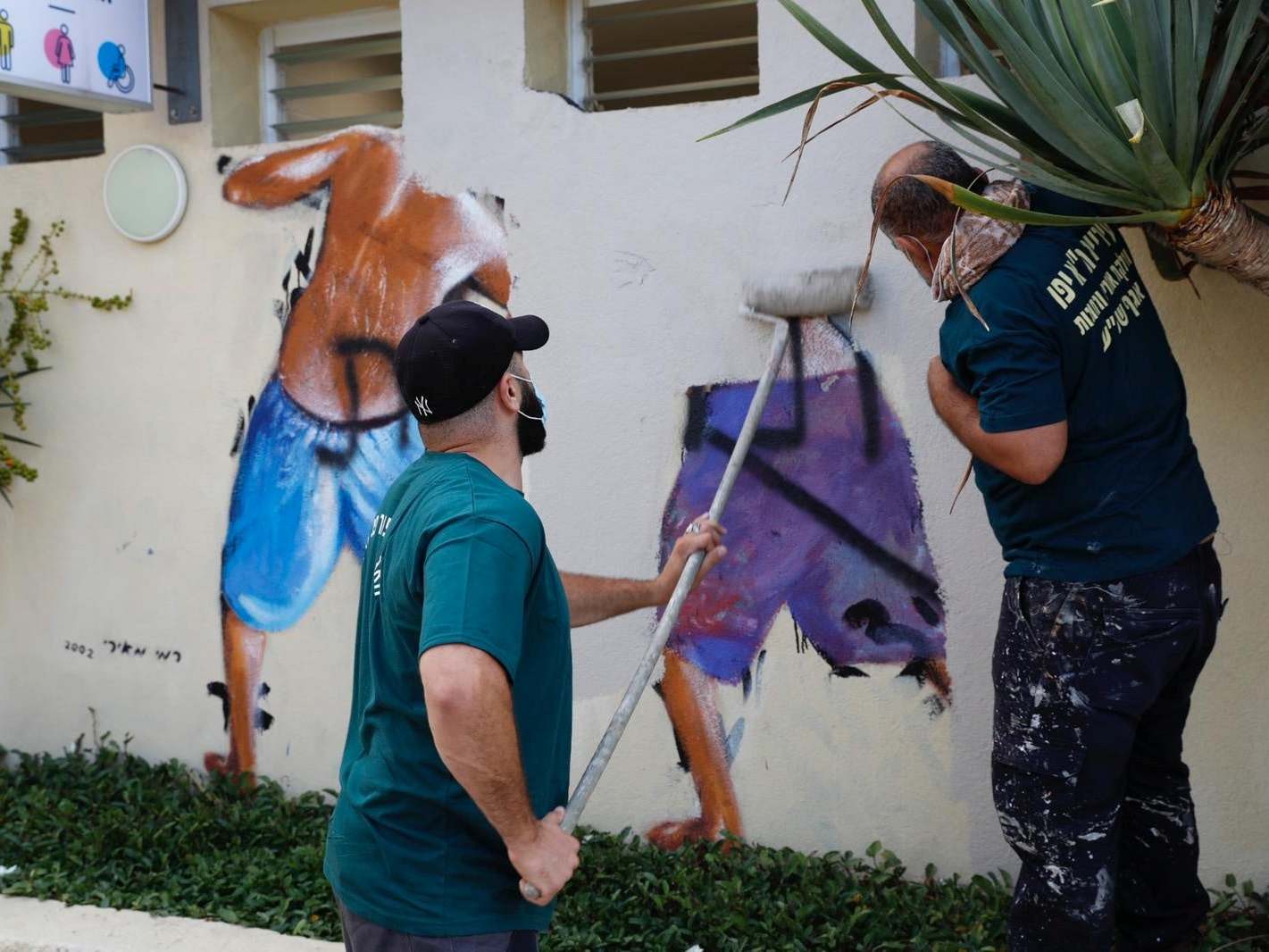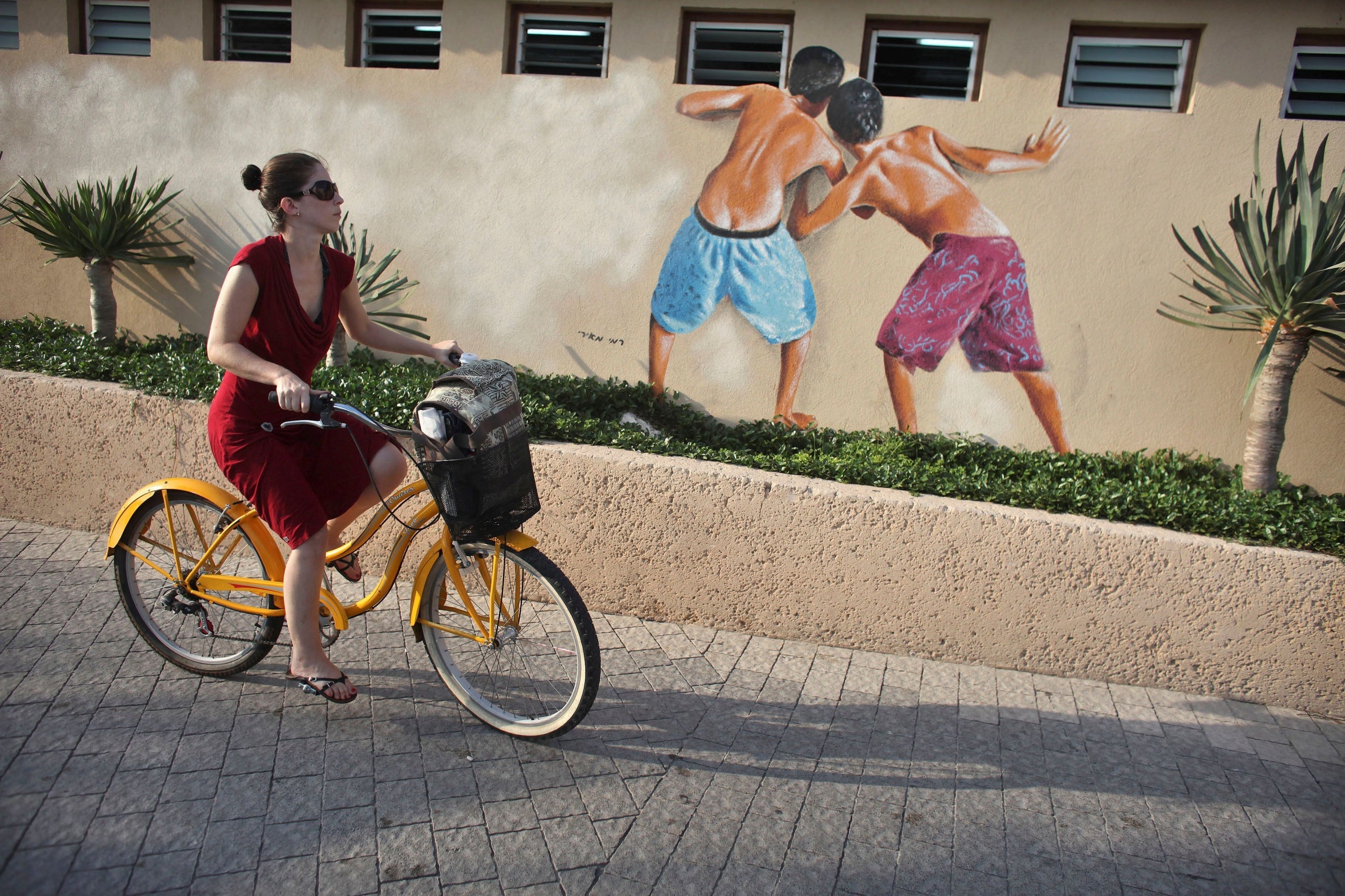'Peeping Toms' mural on women's toilets removed from Tel Aviv beach after suspected gang rape
Mural has frequently been criticised as sexist since it was painted 18 years ago

Your support helps us to tell the story
From reproductive rights to climate change to Big Tech, The Independent is on the ground when the story is developing. Whether it's investigating the financials of Elon Musk's pro-Trump PAC or producing our latest documentary, 'The A Word', which shines a light on the American women fighting for reproductive rights, we know how important it is to parse out the facts from the messaging.
At such a critical moment in US history, we need reporters on the ground. Your donation allows us to keep sending journalists to speak to both sides of the story.
The Independent is trusted by Americans across the entire political spectrum. And unlike many other quality news outlets, we choose not to lock Americans out of our reporting and analysis with paywalls. We believe quality journalism should be available to everyone, paid for by those who can afford it.
Your support makes all the difference.A mural depicting “peeping Toms” leering into the window of women’s changing room at a Tel Aviv beach has been removed after the suspected gang rape of a child in the southern resort of Eilat.
The wall art of the two young men in swimming shorts low enough to reveal some buttock was painted 18 years ago and was often criticised as sexist.
The mural was a gesture to recognise the name of the beach, Metzitzim, Hebrew for "peeping Toms" and the title of a 1972 Israeli cult comedy film about a lifeguard who spies on his friends’ sexual escapades at the seashore.
The painting had previously survived defacement by women’s rights groups, who complained that sexual assault cases in Israel are not prosecuted thoroughly.
Ron Huldai, the mayor of Tel Aviv, said it was time for the painting to go in the wake of the assault against the 16-year-old girl at the Red Sea resort on 12 August.
“Freedom of expression and the arts are important values in our city, but because the painting was seen as acceptance of a forbidden and criminal act, we have decided to say goodbye to it,” Mr Huldai wrote on Twitter.
“Removing the painting does not erase the past, but conveys a clear message to future generations.”
Municipal workers covered it up with white paint on Sunday.

Police investigating the gang rape said they would ask a court later on Sunday to extend the detention of three suspects arrested so far in the case.
The teenager’s lawyer said one of them told police that about 30 men had waited in line to rape her.
National outrage emerged in the wake of the attack, and Israelis have rallied against sexual violence in support of the victim in several cities since.
Women’s rights groups planned more protests for Sunday.
Israel’s prime minister Benjamin Netanyahu described the incident as “a crime against humanity itself that is worthy of all condemnation” in a tweet on Thursday.
Connections have been drawn with the case of a 19-year-old British woman who claimed she had been raped by 12 Israeli men in Ayia Napa, Cyprus last year.
The woman later retracted the allegations, prompting her own prosecution and a four-month suspended sentence.
Human rights campaigners criticised the Cypriot police’s handling of the case and the teenager has maintained she was coerced into retracting her statement.
Her defence lawyer said they would appeal the conviction at the Supreme Court of Cyprus.
Additional reporting by Reuters
Join our commenting forum
Join thought-provoking conversations, follow other Independent readers and see their replies
Comments